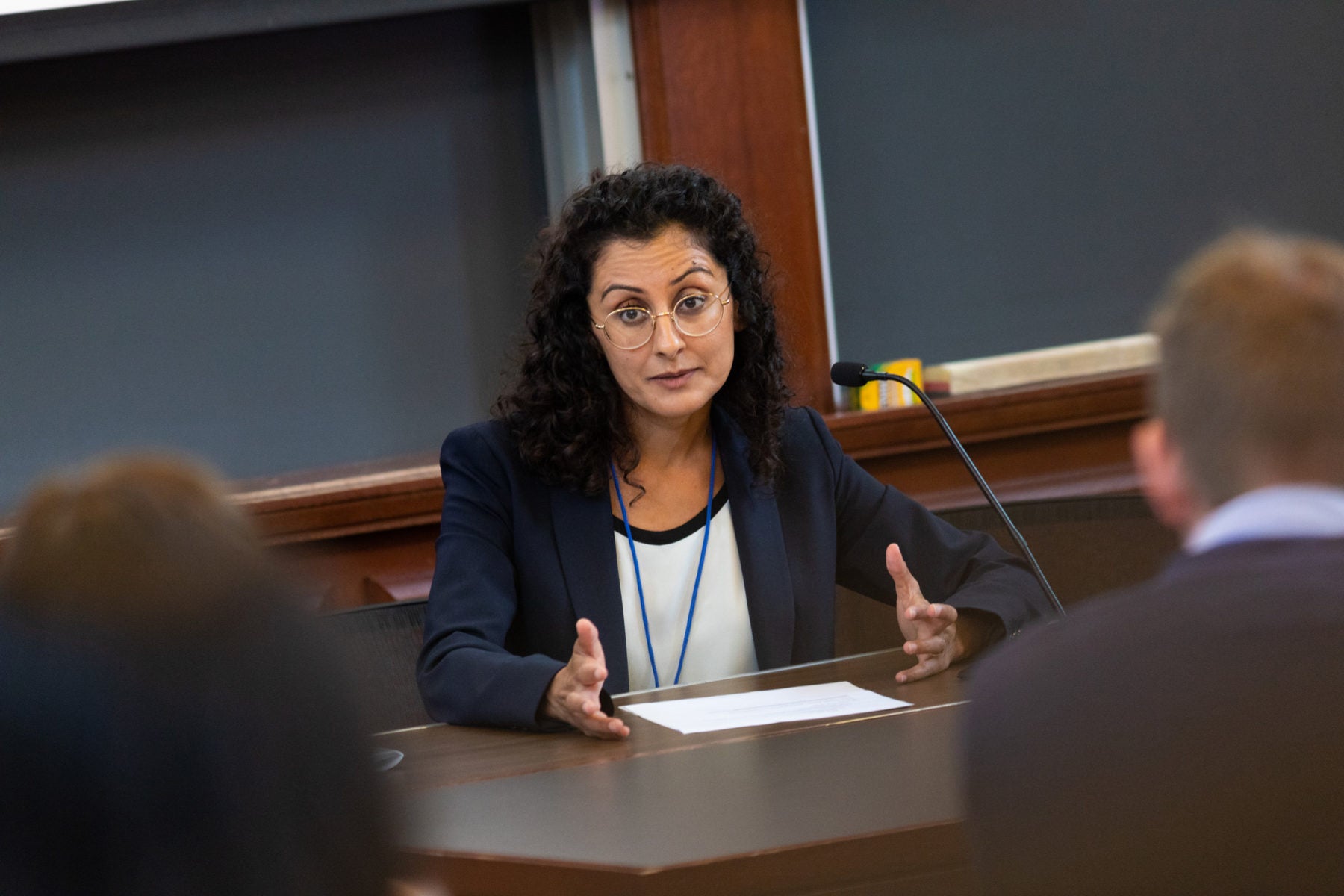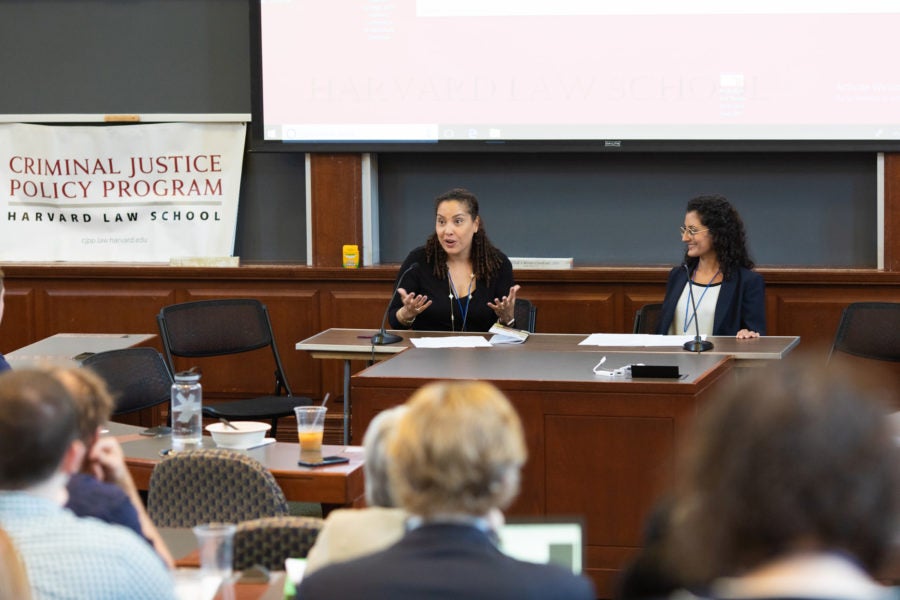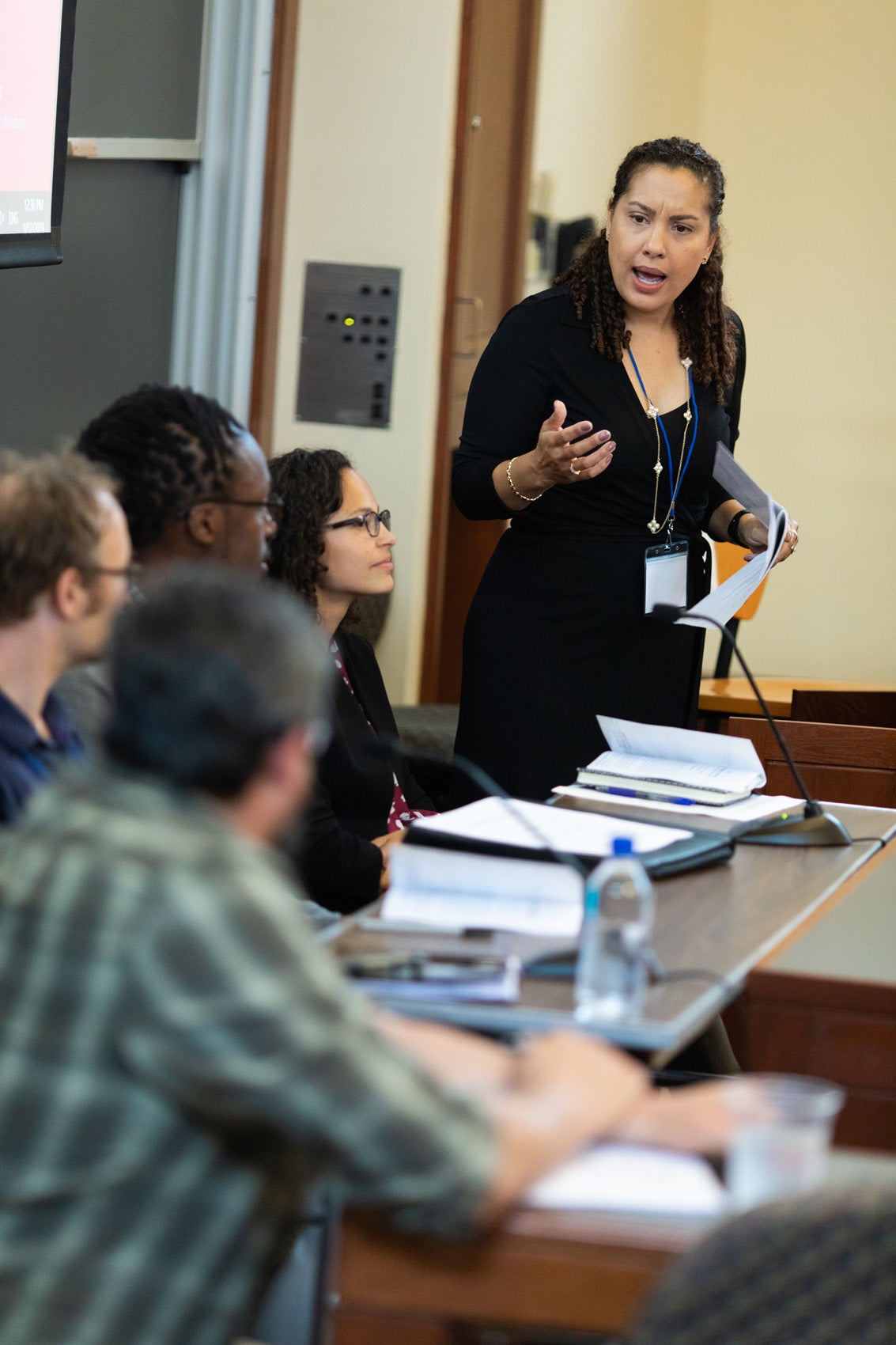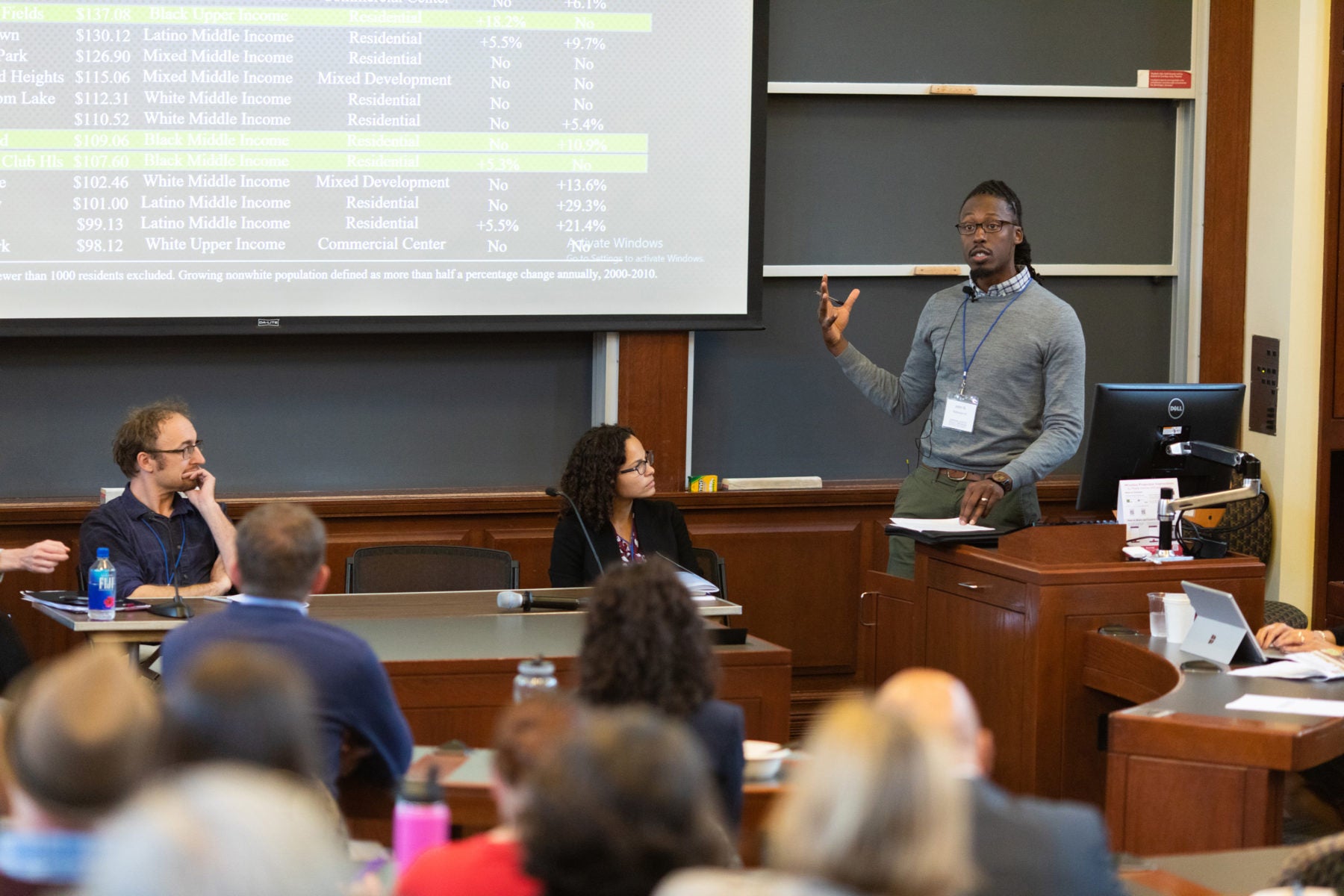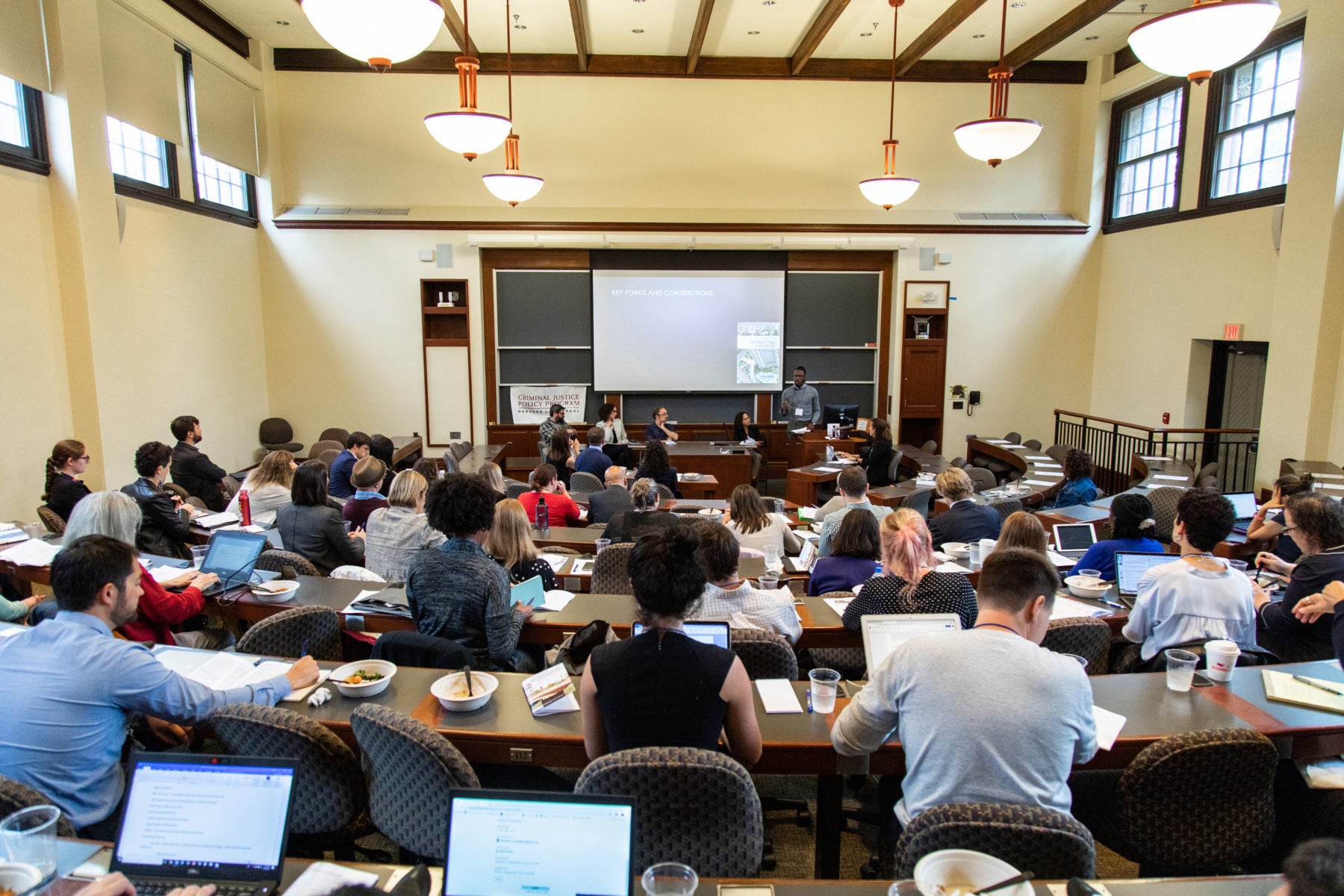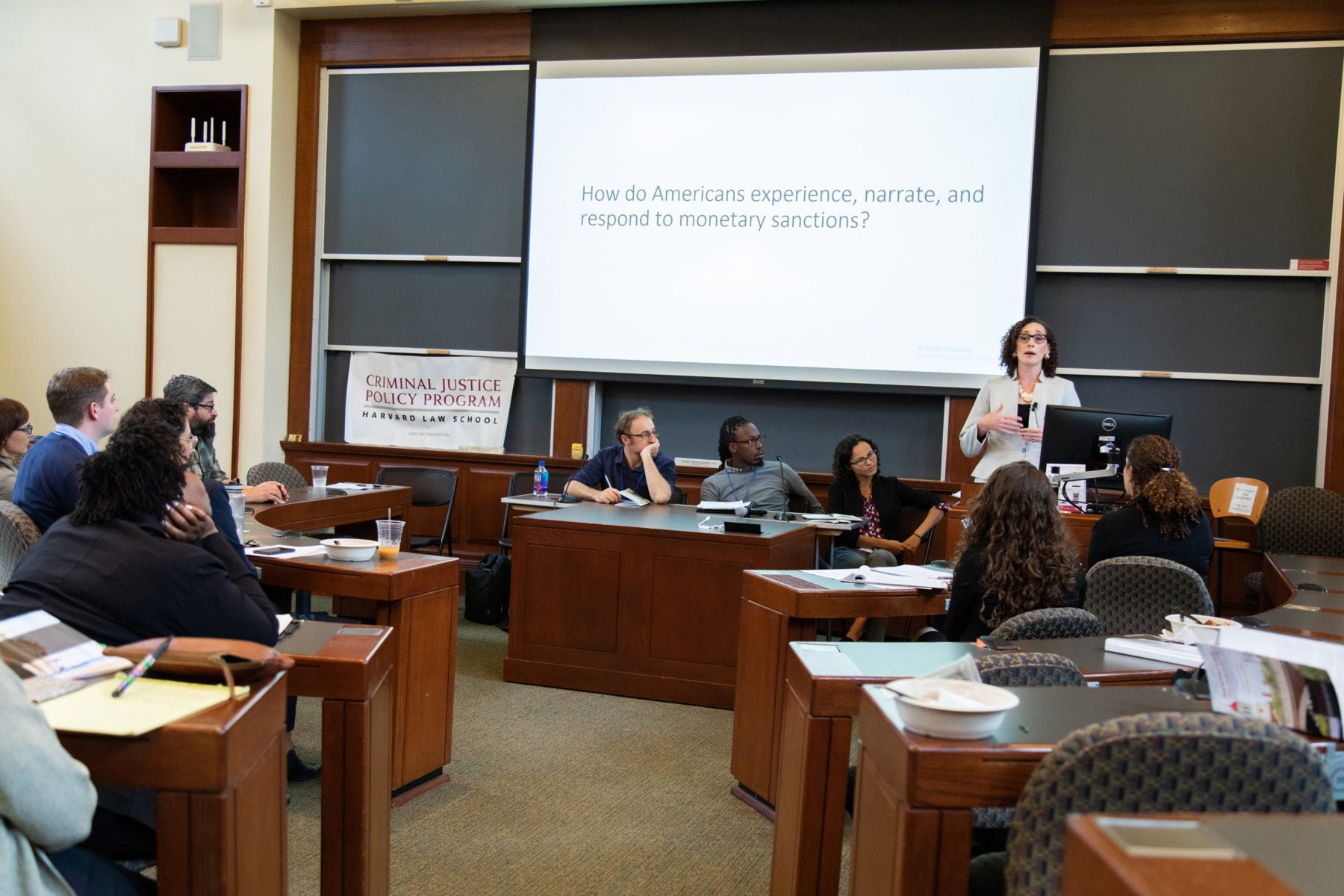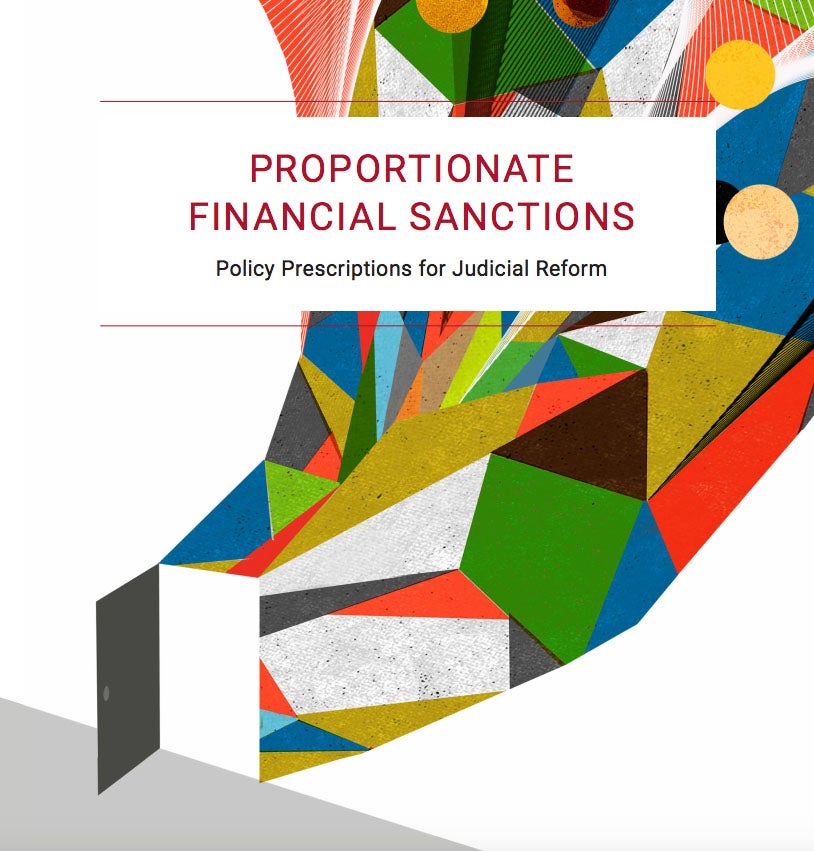In a paper released earlier this month, researchers at Harvard Law School’s Criminal Justice Policy Program lay out a road map for reforming how courts across America can reform the imposition of excessive fines and fees, the devastating impacts of which fall disproportionately on the poor and on people of color.
In “Proportionate Financial Sanctions: Policy Prescriptions for Judicial Reform,” authors Sharon Brett and Mitali Nagrecha argue that revenue-raising fees designed primarily to raise revenue for local governments should be eliminated altogether and that the amounts of court-imposed fines should be determined by a mix of factors, including the severity of the offense and people’s ability to pay. Warrants, driver’s license revocation, and incarceration should not be used to compel payment or punish nonpayment, they argue.
“Across the United States, jurisdictions impose what amount to regressive taxes on their poorest residents to fund courts and other services,” write the authors. Nagrecha also launched and directs the program’s Criminal Justice Debt Initiative. Brett serves as the program’s senior staff attorney.
[pull-quote author=”Co-authors Sharon Brett and Mitali Nagrecha of CJPP report “Proportionate Financial Sanctions: Policy Prescriptions for Judicial Reform” ” content=”Under our framework courts would not require people to pay revenue-raising fees and costs, and would impose only a proportionate fine as a sentence for an offense and as an alternative to more punitive sentencing options.” float=”right”]
The report notes that when people are sentenced in criminal court or face civil penalties for traffic and other infractions, they are often charged a fine. In addition, they are also frequently required to pay various fees, such as clerk fees and transcript fees, and surcharges that fund other statewide programs or services. Depending on the offense, they also may be required to pay restitution to compensate victims for any losses.
When combined, the report concludes, these financial sanctions (including fines, fees, and in some cases restitution) are often not scaled to the severity of the offense or the person’s financial circumstances. This disproportionality is exacerbated by the fact that judges setting monetary sanctions do not consider people’s ability to pay, are not given or do not exercise discretion to waive or reduce those sanctions, and may even be influenced by the need to raise revenue. When people are unable to pay these financial sanctions, they may experience additional consequences (including more fees, civil liens, and wage garnishment), become further entrapped in the legal system (through repeated court appearances, warrants, or probation supervision), and face punitive sanctions (including driver’s license suspension or revocation and incarceration).
The report focuses on reforms that judges can and should implement, without waiting for legislatures to take action. “Under our framework,” the authors write, “courts would not require people to pay revenue-raising fees and costs, and would impose only a proportionate fine as a sentence for an offense and as an alternative to more punitive sentencing options. Judges would calculate fines based on concrete numerical criteria that would result in amounts tailored according to the severity of the offense and people’s financial circumstances.”
The report makes clear that transformational reforms are also needed: “[F]ees should be eliminated,” write the authors. “Municipal and state governments should pay for courts and other government functions through tax revenue. They should not use fees as a backdoor tax in the face of budgetary shortfalls.”
“Each recommendation is achievable — and if jurisdictions implement all of the changes we suggest, they will make great progress toward realizing a proportionate and just approach to financial penalties,” they conclude.
The report argues that impoverished people consequently experience much harsher and more prolonged involvement with the legal system than those who can pay their monetary sanctions in full at sentencing. Some people endure years of additional punishment because they are poor. And the effect is even worse for Black and Latinx people who are overrepresented in the legal system because their communities are targets for intensive policing, including revenue-driven law enforcement.
In addition to eliminating revenue-raising fees and making fines proportionate to each person’s financial circumstances, the report also recommends that alternatives to payment, such as community service, must also be proportionate. In addition, the authors argue that people should not be sentenced to probation as a means of monitoring payment, as that subjects them to excessive correctional control and the disproportionate consequences of probation violations.
The Criminal Justice Policy Program at Harvard Law School undertakes legal and policy initiatives that meaningfully advance criminal justice reform. The program’s work includes legal and policy analysis designed to serve advocates or policymakers throughout the country; partnerships with government agencies to pilot and implement practical reforms; and, convenings structured to diagnose problems and chart concrete reforms. In addition to the program’s leadership and staff, Harvard Law School student-fellows contribute to all aspects of the program’s work. They engage in long-term projects designed to have a significant impact on cutting edge criminal justice issues at the local, state, and national level.
Conference: Progressing Reform of Fees and Fines
racial injustices, shifting political contexts, and economic changes help us understand these policies and implications for change.
